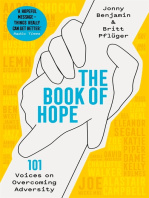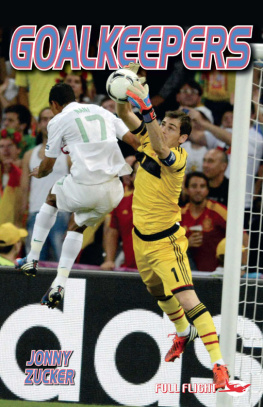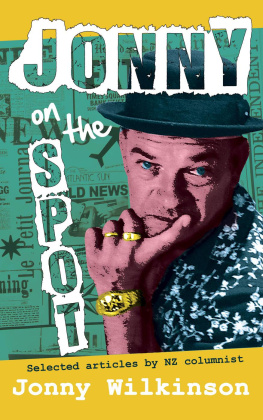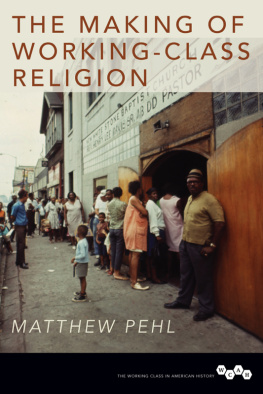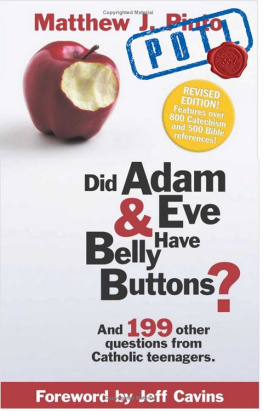Welcome
Our children are the rock on which our future will be built, our greatest asset as a nation.
Nelson Mandela
Thanks!
First of all, thanks for buying this book!
Why this book?
This little book is intended to be a helpful book, but its also a kind of manifesto. Its a gathering together of positive beliefs and values for working with troubled young people.
There are a number of reasons why I wanted to write it:
To inspire. Working with troubled young people whatever their specific challenges is demanding. If I can add some inspiration to help like-minded people to keep going, reflect and improve on what they do, all the better. Sometimes all it takes is a shot of encouragement or an inspirational thought and were back on track.
To inform. We all learn as we go along. We pick up little tricks of the trade. We establish what works for us. I want to pass on some of what Ive learned in 30+ years of working with young people. I hope it will help you crystallise your own ideas and maybe inspire some new ones.
Meet the author
Whenever I read something, I find it helpful to know a little about the author. I reckon I owe it to you to do the same for my readers, so here goes.
My passion is working to help young people in crisis to recover. I also like to inspire colleagues to do the same.
I left school at 16 to apprentice as a motor mechanic. I volunteered in a church youth club at the same time (I was the kid who wouldnt leave!). Later I qualified in social work, specialising in youth justice, before taking a Masters degree in criminology and criminal justice.
I have previously been a youth justice social worker for a local authority in a youth offending team and, for nearly ten years, a manager and specialist practitioner with Barnardos Cymru Taith Service, working with children and young people with sexualised histories who are now displaying harmful sexual behaviour of their own.
One of my most challenging professional roles was being part of the management team at a Secure Childrens Home. My responsibilities included interventions, care planning and staff training. Essentially, it was my job to lead the organisation in our endeavours to treat the problems of some of the countrys most difficult and damaged children.
I currently work part-time as Practice Change Lead with the Youth Justice Board, in Wales. Im helping to test a child development approach to complex and prolific offending young people.
My interests have broadened over the years to include anything relating to children and young people who, because of their experiences, have a troubled life and need help. Over the years, as my career has unfolded, Ive found myself doing less direct work with children and a lot more helping those who do the helping.
This book is part of that: I want it to promote the rights, well-being and future success of young people whose start in life has been a struggle.
Maybe theyve been abused, neglected, brain-injured or abandoned to the care system, or maybe they have a mental illness. Whatever the cause, life for many young people is tough. Very tough.
Finding a positive path
Many of us will be able to look back at decisions weve made which have led us down particular paths in life. I was one of those kids who could have gone either way: into trouble or on to success.
I found myself faced with two paths whilst sat in the back of a police car in 1982. Lets say Id put a little more than a foot wrong, and the officer in question wasnt happy at all with me. It was a make or break moment. I was told I could either apologise, or be taken home in a police car and see him again in court.
As it happened, I was able to make the right decision. I made my apologies, ate a massive slice of humble pie, and the police officer let me go.
Looking back now I wonder how I kept my cool.
But, when I really think about it, the reason I was able to apologise becomes clear it was because Id had a great start in life, with dedicated, hard-working, loving parents who provided a moral framework for me to follow. I had a sense of how to respond to authority, and they taught me how to understand, control and deal with my emotions so I could make a rational decision under pressure.
In short, they gave me a road map to a good life if I chose to follow it.
But many young people never experience that care. Their early years are characterised by threat, illness, neglect, abuse or a combination of these and more. They have no template for decent behaviour. They dont regulate their emotions well. They live anxiously. And they make bad decisions or stumble into trouble because they have no road map to help them avoid it.
These kids deserve chances. Its our responsibility, wherever possible, to play a part in giving them those chances. And they deserve as many chances as they need in order to turn their lives around.
The importance of key adults
For most children, their best chance lies in building a trusting relationship with an adult who cares. Someone who can be their security and look out for their interests. Someone who knows the way and can guide them along. Someone who believes in them and doesnt give up when the road gets rocky or the young person veers off. And perhaps most importantly of all someone who doesnt give up, even when the young person gives up or does all they can to push people away. Someone anyone who gives a monkeys about them. These kids need someone like that.
Someone like you?
For many kids, that person is a professional. They might be a support worker or mentor, social worker, a foster or kinship carer, a therapist, a youth offending team worker, a youth worker, someone in residential childcare, or a school teacher.
Its less about the role or the title its all about the person .
Introduction
Reprimand not a child immediately on the offence. Wait till the irritation has been replaced by serenity.
Moses Hasid
When you encounter difficulties and contradictions, do not try to break them, but bend them with gentleness and time.
St Francis de Sales
Best insult ever!
The best insult I ever had from a young person was very graphic: F*** off you short-a***d Yorkshire c***. It was brilliant!
Brilliant because it focussed on all the things he thought would hurt me: my size (not very tall!), my accent, and his thoughts about me. It was only a few words long. And it was cutting!
Reading this you may experience one of two responses to it:
A chuckle to yourself , as you recall similar experiences youve had, or
Your defences kick in , and you begin to feel a little angry or agitated about the fact that kids sometimes behave in this way.
This book is for people who are number 1s.
Number 2s are you willing to give this book a chance to change your thinking? Are you open to radically changing your practice, and engaging troubled young people in ways that will help them? If so, please carry on!
Helping troubled kids: finger-waggers need not apply
You see, people who are number 2s have a tendency towards a belief system typified by the following markers:




